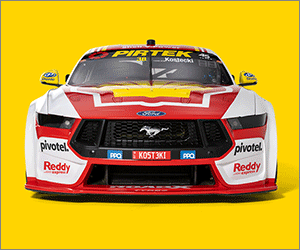
Z is the final letter in the alphabet – but that doesn’t mean the Nissan Z is the final piece in the story of the Japanese sports car.
That’s the good news from Hiroshi Tamura, who these days is officially known as a Nissan ‘brand ambassador’ but was the long-time boss of the brand’s sports car range, overseeing the development of both the Z and GT-R.
He was in Australia for the recent Z launch and spoke with Torquecafe about the development of the new model but also the next evolution of the famous sports coupe and its big brother, the GT-R.
ROAD TEST: 2022 Nissan Z review
While he didn’t want to categorically declare that this new model would be the last, he did note the significance of the name change – which in recent models has evolved from 300ZX to 350Z to 370Z and now just the single letter.
Asked if this signified an end to the model line, Tamura said: “I would not say ‘last’ but basically Z is the last [letter] of the alphabet.”
The logical assumption – given the overwhelming industry-wide and Nissan-specific push into electrification – is that the next-generation Z, which wouldn’t arrive until early next decade, would swap petrol-power for electric motors. But while Tamura admitted that the company will look at the possibility of an electric Z, he was adamant that it’s not a simple case of ‘yes or no’ and there were many factors to consider.
“Why not study about other solutions?” Tamura said. This is in keeping with his ‘why not’ attitude that allowed him to convince Nissan management to develop the new Z despite declining sales for such cars.

According to Tamura, the challenge Nissan needs to overcome before it can build a true ‘sports car’ and not a ‘performance car’ – which he defines broadly as the difference between a good-handling and a powerful car – will be the size and range of the batteries.
He believes battery and motor technology needs to get smaller and lighter to be more suitable for a sports car, in order not to compromise its weight and handling, and admits it may not be ready by the time this new Z has run its course.
“That’s why I can’t say ‘the next generation will be EV,’” he admitted.
ROAD TEST: 2020 Nissan GT-R 50th Anniversary edition review
The GT-R, though, is a different story. The current ‘R35’ generation has been in production since 2007 and there have been numerous reports over the years that Nissan has been considering either an all-electric or hybrid powertrain for its hero supercar.
This is something Tamura effectively confirmed, saying there have been several internal case studies examining the next-generation GT-R. Crucially though, he stopped short of confirming what solution has been chosen and raised the question of whether GT-R customers want electrification.
“A case study has already started,” he said. “Actually it has started so many times – again and stop, again and stop – but the point is, it depends on customers’ motivation and feeling. Are they going to chase something like that?”
One final point Tamura made on both the Z and GT-R is his belief that the two models, which the company has said is key to its “Nissan-ness”, will almost certainly be the final models to switch to electrification within the company’s range.













Discussion about this post